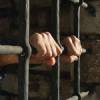【听力】How to Take the Ideal Nap and Avoid Bad Sleep
How to Take the Ideal Nap and Avoid Bad Sleep
Matthew Walker: My name is Matthew Walker. I am a professor of neuroscience and psychology at the University of California, Berkeley and I am the author of the book, “Why We Sleep.”
Should we actually be taking naps during the day? Well, we certainly know from evidence in my own sleep center and that of many other scientists that naps can give you benefits for both your brain and your body. But naps can actually be a double-edged sword because whilst we’re awake during the day, we’re building up sleepiness or sleep pressure. So that when you try to fall asleep at night, you’ll fall asleep quickly and then you’ll stay asleep. And when we sleep, we actually release that sleepiness, almost like a valve on a pressure cooker, so that we wake up the next morning feeling refreshed.
So if you take a nap during the day, especially if you take it too late in the afternoon, you will actually release some of that sleepiness and it will make it that much more difficult to fall asleep and stay asleep soundly throughout the night. So the advice would be if you don’t struggle with your sleep and you can nap regularly, then naps are just fine.
But if you do find it difficult to fall asleep or stay asleep at night, then you should avoid naps and try and build up that healthy sleepiness in the evening.
The ideal nap depends on what you actually want from that nap. Different stages of sleep actually give you different types of brain and body benefits.
But if you want to avoid that grogginess that you can often have after a long sleep, then you should perhaps avoid naps that are longer than maybe 40 or 50 minutes in length.
You should also try to avoid naps late in the afternoon so that you wake up at least after you finish the nap and still have enough time to build up that sleepiness, that sleep pressure so that you can get to sleep in the evening.
Can naps help with sleep debt?
Matthew Walker: And the answer, unfortunately, is no. Sleep is actually not like the bank. You can’t accumulate a debt and then hope to pay it off at some later point in time. So sleep is an all-or-nothing event in that sense. So you can’t short sleep during the week and then try to binge and oversleep at the weekend.
So if I were to take a human being and deprive them of sleep for one night, so that they’ve lost eight hours of sleep and then I give them all of the recovery sleep that they want on a second, a third, even a fourth night, they do sleep longer, but they never get back that full eight hours that they’ve lost.
And we can ask then, “Why isn’t there some kind of a credit system in the brain? Why don’t we have a cell that can actually store up that sleep?”
Because there is precedent for this. We actually have a storage system for calories within the body and they’re called, “fat cells.” Because there was a time during the evolutionary process where we had feast and where we had famine. And when we had feast, we would store that caloric energy and fat cells so that when we went into a debt during that caloric famine, we could actually survive.
Human beings are the only species that deliberately deprive themselves of sleep for no apparent reason. And that means that Mother Nature has never had to face the challenge of sleep deprivation during the course of evolution and therefore, she’s never had to come up with a safety net mechanism that overcomes a sleep debt.
1、头条易读遵循行业规范,任何转载的稿件都会明确标注作者和来源;
2、本文内容来自“英文巴士”微信公众号,文章版权归英文巴士公众号所有。



























